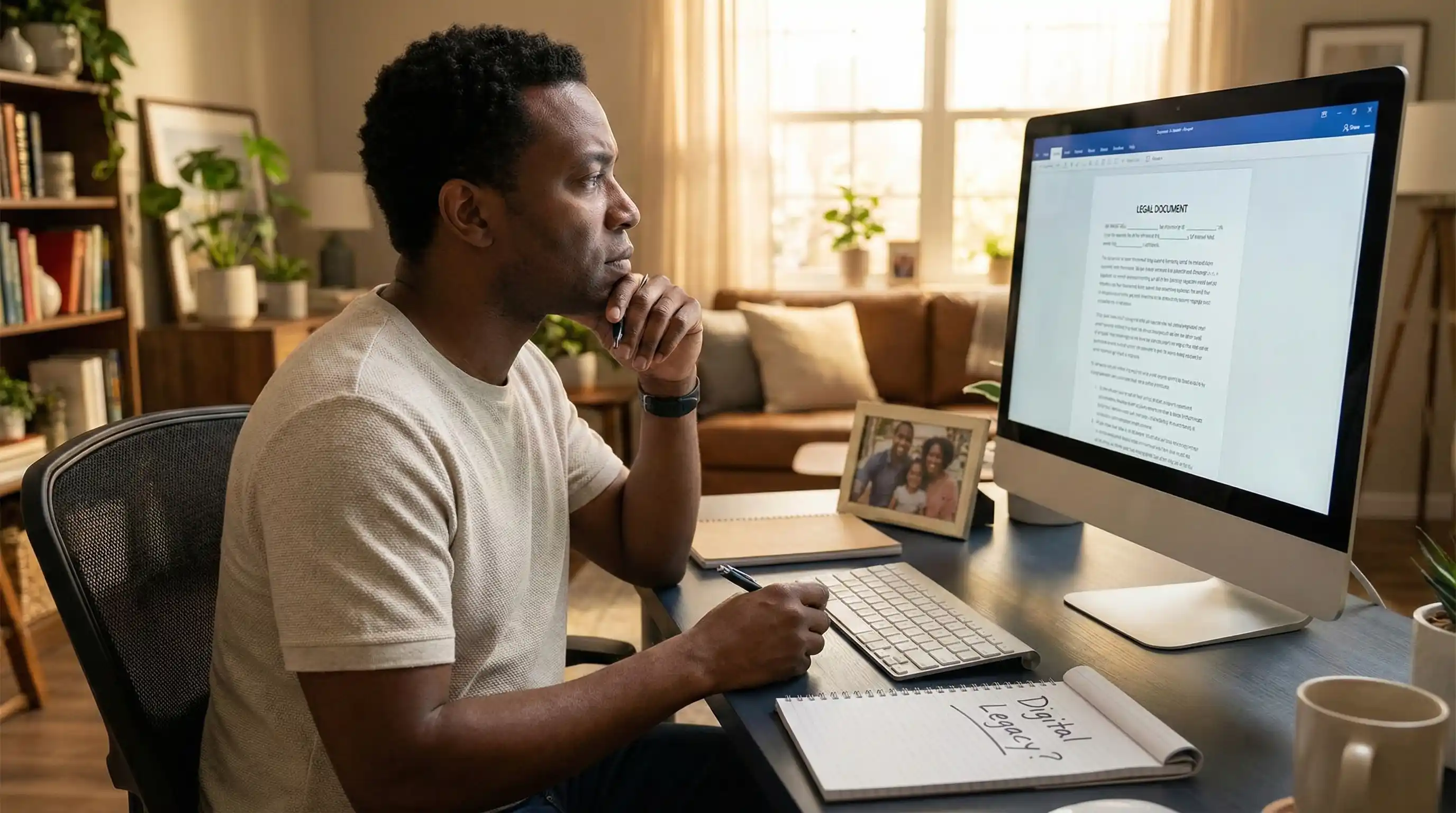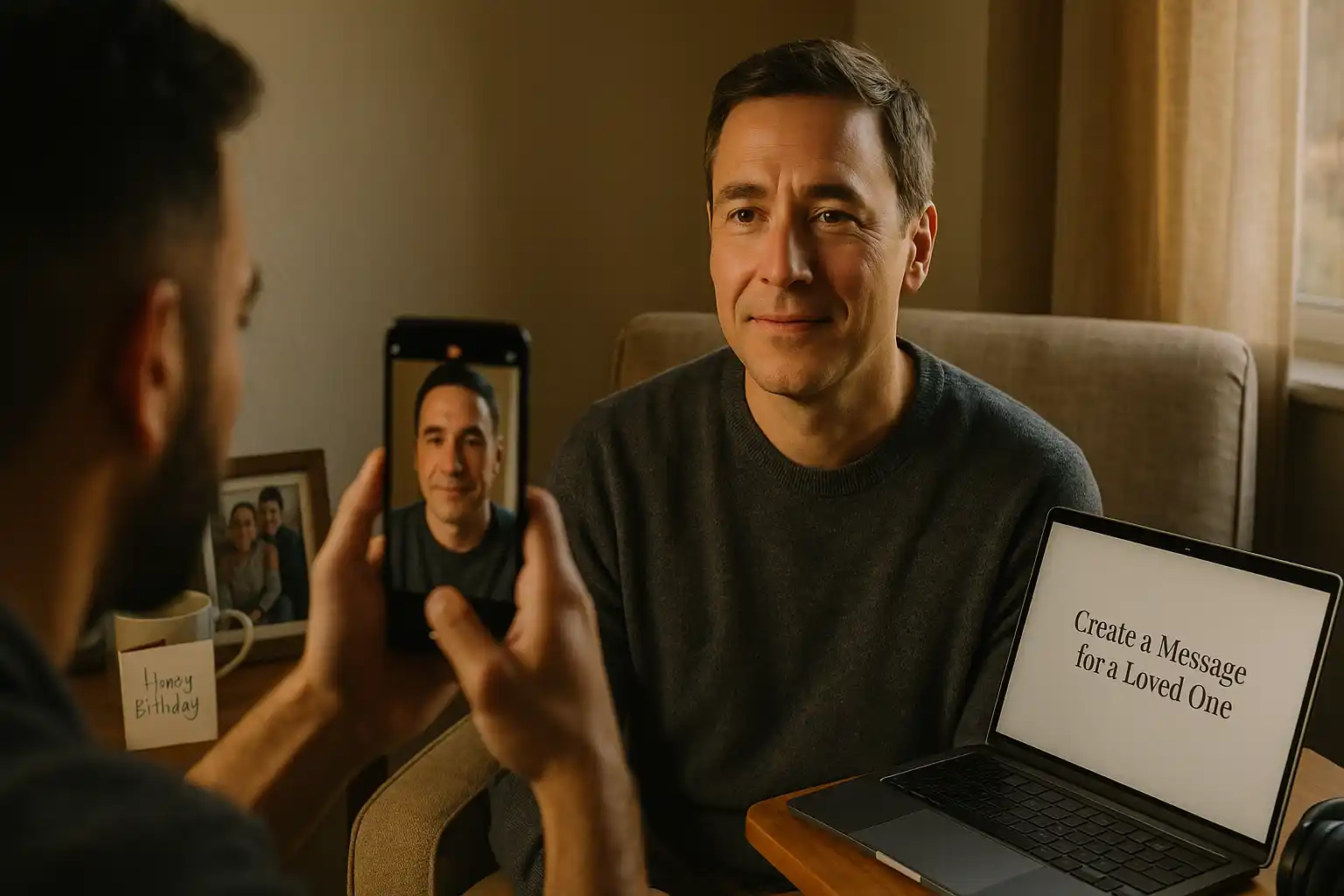How Digital Legacy Tools Are Transforming the Way We Prepare for Death—and Celebrate Life
In an era where technology touches every facet of our lives, from how we work to how we love, one realm has long resisted digital transformation: the way we die. Or more specifically, how we prepare for death, remember our loved ones, and preserve emotional legacies. That resistance is finally beginning to dissolve, thanks to a growing movement in the "death tech" space—a term that might sound futuristic, but is rooted in the deeply human desire to connect, reflect, and be remembered.

About This Blog
In an era where technology touches every facet of our lives, from how we work to how we love, one realm has long resisted digital transformation: the way we die. Or more specifically, how we prepare for death, remember our loved ones, and preserve emotional legacies. That resistance is finally beginning to dissolve, thanks to a growing movement in the "death tech" space—a term that might sound futuristic, but is rooted in the deeply human desire to connect, reflect, and be remembered.
One such innovation is Amori, a digital tool designed to help parents leave behind emotional time capsules for their children. But beyond being a tech product, Amori represents a broader cultural shift: an acknowledgment that talking about death—and love—can be one of the most profound acts of living.
Why We Avoid the Conversation
Death, despite being a universal experience, remains a taboo topic in many societies. This avoidance is not confined to any one culture. As Su Park, founder of Amori, points out, whether you're in Korea or Canada, conversations about mortality are often sidestepped, even when terminal illness is present. Fear, uncertainty, and discomfort make it easier to hope for the best than to plan for the inevitable.
But this silence comes at a cost. When death arrives without warning or adequate emotional preparation, it often leaves a wake of unresolved questions, guilt, and longing. Loved ones are left wondering: Were they afraid? Did they know how much I loved them? What were their hopes for me after they were gone?
These lingering questions don’t just complicate grief—they prolong it.
The Need for Emotional Legacy
While legal wills and funeral plans are increasingly discussed, there remains a massive gap in how we pass down the emotional wisdom, values, and love that shape who we are. This is where emotional legacy becomes vital. Emotional legacies are the stories, sentiments, memories, and wishes we leave behind—not in a safe deposit box, but in the hearts of those we love.
Amori is not the only digital legacy tool available, but it’s unique in its emphasis on emotional connection over data collection. It's designed to help people, particularly parents, document their thoughts, hopes, and memories for their children at different life stages. It becomes, in essence, a digital form of living letters—loving reminders of one’s presence, even in physical absence.
For Su Park, the motivation to build Amori came from her own loss. When her mother died suddenly from breast cancer in late 2023, there were no final conversations, no parting messages, no affirmations of love. That experience left her with a profound sense of emotional incompletion—an emptiness many can relate to.
What Digital Legacy Really Offers
At first glance, apps like Amori may seem focused on death. But spend a few minutes exploring their features and intent, and it's clear they’re more about life. They serve as tools for:
Reflection: Encouraging users to think deeply about their lives, values, relationships, and the messages they want to leave behind.
Connection: Facilitating communication across time, offering children (of any age) a way to continue bonding with a parent long after they’re gone.
Healing: Creating opportunities for meaning-making and peace by giving voice to emotions that might otherwise go unspoken.
Importantly, these tools are not just for the dying. They can be used by healthy individuals who want to ensure their words and intentions are preserved. They can be a part of a birthday ritual, a family tradition, or simply a personal journaling habit. The point is not to predict the end, but to celebrate the now while preparing for the later.
Breaking the Intergenerational Silence
One of the most powerful implications of emotional legacy work is its ability to interrupt patterns of silence that often pass from generation to generation. Many adults who lose a parent early in life describe a lifelong yearning to know what their parent would have thought or wanted for them.
Amori offers a proactive way to break that cycle. By creating space for meaningful expressions—whether it’s a simple “I’m proud of you,” a story about childhood mischief, or advice on handling heartbreak—parents can leave a breadcrumb trail of love and identity for their children.
Even messages created when a child is young can hold evolving meaning over time. As Su shared in the podcast, a letter her mother wrote when she was ten has taken on entirely new significance in adulthood. What once was a casual note became a priceless keepsake, filled with affirmation and presence.
The Role of Technology in Grieving
Grief doesn’t follow a timeline. It resurfaces during birthdays, graduations, weddings, and quiet Tuesday afternoons. In those moments, being able to hear a loved one’s voice, see their words, or recall their stories can provide immense comfort. Technology, when used with empathy and purpose, becomes not just a medium—but a bridge across time.
That’s the real gift of tools like Amori. They don’t replace human connection—they extend it.
A Call to Embrace Mortality with Intention
At its core, the death tech movement is not about morbidity or fear. It’s about reclaiming agency over the one part of life we so often try to ignore. Embracing mortality is not about giving up—it’s about showing up, fully and presently, for the people we love.
Legacy creation, when approached with care, becomes an act of radical love. And while digital tools make this easier and more organized, the real magic lies in the willingness to start.
Whether you’re 30 or 70, healthy or navigating illness, there is power in taking a moment to ask: What do I want to leave behind—not in terms of things, but in terms of meaning? And equally important: What do I wish I had heard from the ones I’ve lost?
Watch the Full Conversation
If this topic resonates with you—or if you’re simply curious about how technology and mortality intersect in profound and practical ways—don’t miss the full podcast episode featuring Su Park. Her candid reflections and innovative vision offer a compassionate roadmap for navigating loss and legacy in the digital age.
👉 Watch the full episode now on YouTube.
If something happened to you, would the people in your life know what to do? Don't leave your loved ones in the dark. Start developing your end-of-life and digital legacy plan. Download the My Final Playbook App on the App Store or Google Play or visit us online at Final-Playbook.Passion.io to get started. With My Final Playbook, you'll be able to start and learn how to organize your legal, financial, physical, and digital assets today. Until then, keep your password safe and your playbook up to date.
Related Blog
Duis mi velit, auctor vitae leo a, luctus congue dolor. Nullam at velit quis tortor malesuada ultrices vitae vitae lacus. Curabitur tortor purus, tempor in dignissim eget, convallis in lorem.





Comments